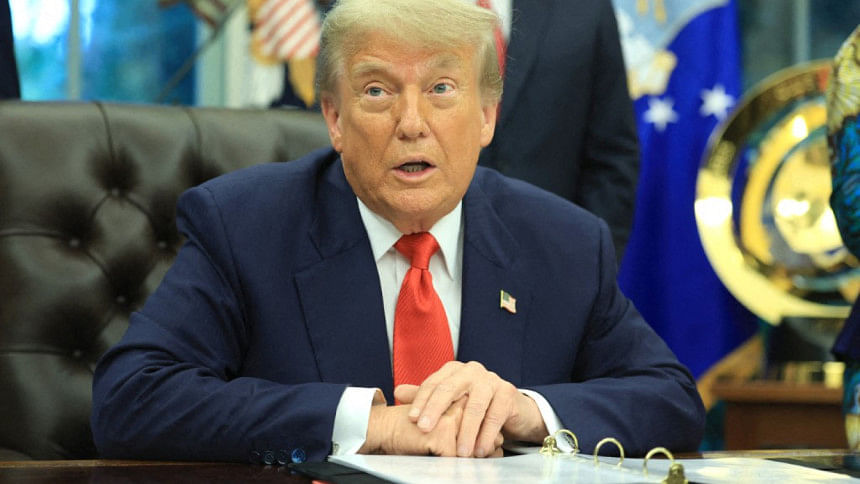Rwanda, DR Congo sign peace deal

Rwanda and the Democratic Republic of Congo have signed a peace agreement Washington to end fighting that has killed thousands, with the two countries pledging to pull back support for guerrillas -- and President Donald Trump boasting of securing mineral wealth.
"Today, the violence and destruction comes to an end, and the entire region begins a new chapter of hope and opportunity," Trump said as he welcomed the two nations' foreign ministers to the White House on Friday. "This is a wonderful day."
The agreement comes after the M23, an ethnic Tutsi rebel force linked to Rwanda, sprinted across the mineral-rich east of the DRC this year, seizing vast territory including the key city of Goma.
The deal -- negotiated through Qatar since before Trump took office -- does not explicitly address the gains of the M23 in the area torn by decades of on-off war but calls for Rwanda to end "defensive measures" it has taken.
Rwanda has denied directly supporting the M23 but has demanded an end to another armed group, the Democratic Forces for the Liberation of Rwanda (FDLR), which was established by ethnic Hutus linked to the massacres of Tutsis in the 1994 Rwanda genocide.
The agreement calls for the "neutralisation" of the FDLR, with Rwandan Foreign Minister Olivier Nduhungirehe saying the "irreversible and verifiable end to state support" to the Hutu militants should be the "first order of business."
The process would be "accompanied by a lifting of Rwanda's defensive measures," Nduhungirehe said at a signing ceremony at the State Department.
But he added: "We must acknowledge that there is a great deal of uncertainty in our region, and beyond, because many previous agreements have not been implemented."
His Congolese counterpart, Therese Kayikwamba Wagner, highlighted the agreement's call for respecting state sovereignty.
"It offers a rare chance to turn the page, not just with words but with real change on the ground. Some wounds will heal, but they will never fully disappear," she said.
The agreement also sets up a joint security coordination body to monitor progress and calls vaguely for a "regional economic integration framework" within three months.
Speaking to reporters earlier Friday, Trump said the United States would be able to secure "a lot of mineral rights from the Congo."
The DRC has enormous mineral reserves that include lithium and cobalt, vital in electric vehicles and other advanced technologies, with US rival China now a key player in securing the resources.
UN Secretary-General Antonio Guterres called the deal "a significant step towards de-escalation, peace and stability" in the eastern DRC and the Great Lakes region.

 For all latest news, follow The Daily Star's Google News channel.
For all latest news, follow The Daily Star's Google News channel. 



Comments